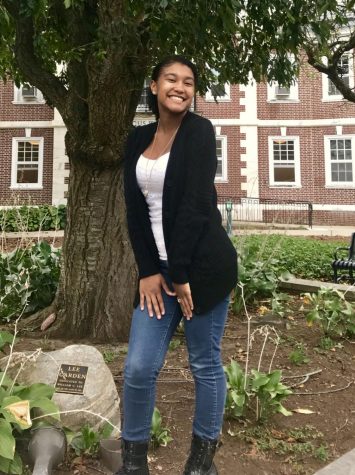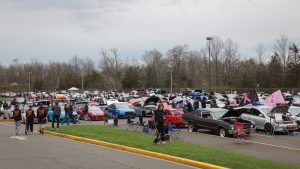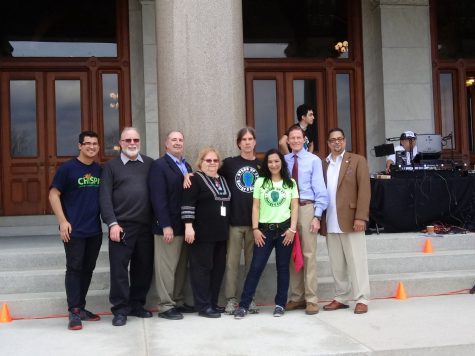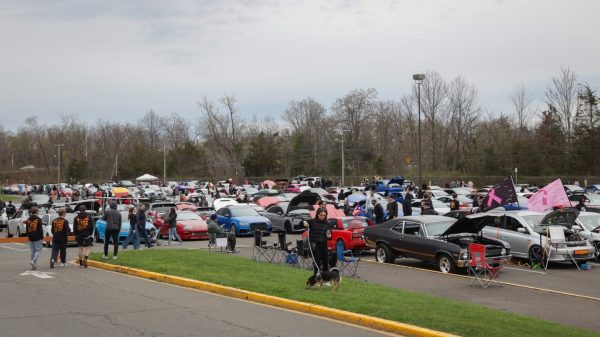Transitioning To Sustainability Is A Must
February 9, 2020
As part of the new strategic plan, President Dr. Zulma Toro and a number of committees are looking to implement five ambitious goals by 2030. One of which being to “develop new community engagement opportunities that benefit New Britain, the region and the state socially, culturally, environmentally, and economically.” But sustainability fails to be at the forefront of the university’s goals.
Director of CCSU Environmental Health, Safety and Sustainability Karen Misbach shares that the university has been working towards achieving the goal and other environmental-oriented initiatives. As she co-chairs the President’s Advisory Council for Environmental Sustainability (PACES) with Dr. Charles E. Button, they work together to move CCSU towards becoming a more sustainable campus.
They highlight that there are three pillars of sustainability: social, economic and environmental. If any singular pillar becomes too strong, then it destroys the rest.
“If any of those three parts of sustainability take over and become more dominant it takes away from the others. So you can try and work on your economic sustainability at a cost to maybe your environmental or social and it works the same for each and every one of those.” Misbach said. “You can’t build your economy and have your environment fall apart or at the expense of its people. It’s all incredibly related — it’s almost ecological.”
Misbach admits that the economic challenges the university faces are what partially kept them from achieving some of their environmental goals, such as transitioning the main campus to solar power. As of now, the university is falling behind on fulfilling their goals in the American College & University Presidents’ Climate Commitment they adopted in 2007.
Within this agreement, CCSU is supposed to betaking concrete steps to achieving climate neutrality by 2050. In order to do so, the university must reduce its greenhouse gas emissions to 50 percent below the Fiscal Year 2008 levels and by the Fiscal Year 2025. As of now, CCSU is not on track to reaching that goal.
“We’re trying to become a lot more active than we have in the last years because I’m somebody who likes to see progress in things or actions taken where we can actually make progress towards our goals,” Misbach stated. “So it’s not exactly things people will see but it helps with our energy usage.”
Some of the projects already in motion include adjusting and upgrading buildings’ to LED lighting and altering their heating and ventilation systems to be more energy sufficient. One of the more impactful projects is the Residential Recycle Program, which allows resident students to donate their gently-used or unused items to local donation centers at the end of each spring semester.
In an public statement, Button emphasized that it is critical the university begins to make more changes, as there have been three decades worths of warnings from the global scientific community and the United Nations Intergovernmental Panel on Climate Change; furthering the severity of how climate change is “unfolding in real time.”
Dr. Alexandrina Tzanova of the Geological Sciences Department carries similar concerns, noting that in the past 200 years a lot of geographical changes have formed thus impacting the life span of current and future generations.
In her course on climate change, Tzanova discusses the different life aspects and fairness in climate. She notes that fairness is subjective based on the point of view in developed and developing countries, which in part makes climate change difficult to approach.
“If you ask a developed country to cover the cost then its ‘Well I paid my dues, I developed in order to have these resources.’ Where on the other hand, if you’re from the point of view from the developing country, you’re thinking, ‘Well you’re the one who ruined it for me. You’re the one who used the fossil fuels to get rich and now you’re rich and have solar and all these other technologies that I cannot afford, but I’m suffering [from] the climate change that you caused.’,” Tzanova explained.
She hopes to see the university get more involved in publicizing their climate initiatives and bringing them to the forefront of their missions. However, she believes the power relies further than the administration.
“I think the ball has to be put in the court of the students because a lot of the really successful initiatives I’ve seen are student-driven. The university can put a bunch of recycling bins in place but if the students, faculty and staff are still throwing their recyclables in the trash, then that’s not really gonna help,” Tzanova said.
Sustainability is not a one-step destination but a transition, as Button likes to tell his students. He, himself, continues to learn new ways to become more environmentally friendly, arguing that there is always room for improvement. In his course, Button emphasizes that there are a number of ways for one to improve their sustainability efforts. He recommends beginning with smaller changes, such as eating locally, using reusable products and to constantly think before taking action.
“It’s not just teaching about a subject, you’re literally teaching people a different way of thinking about how people are connected,” Button stated.
Tzanova carries similar beliefs, expressing that not everyone should follow the same rules as others, since each person has their own morals and beliefs from their culture and religions.
“You cannot ask that of everyone, but if everyone picks something that makes them feel like they’re making a sacrifice or they can live with putting sustainability as part of their choices. Being that choice is the car that they drive, how they tend to their lawn, do they put any energy-sufficient appliances in their houses — as long as they doesn’t feel like a sacrifice to the person [then] the more likely they are to stick with it,” Tzanova added.











